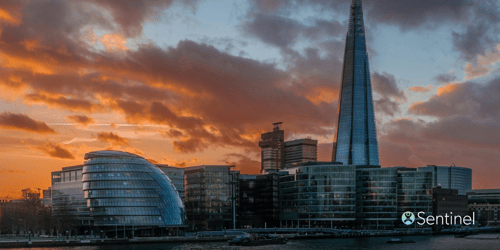The Importance of Communication During Fire and Building Evacuations
As the owner of a high-rise residential building in England, the Building Safety Act 2022 introduces several key requirements that you need to comply - we recently outlined some best practice on this.
The Building Safety Act primarily focuses on high-rise buildings (those over 18 metres or seven storeys) to ensure safety, particularly around fire and structural issues. In this post we step into your shoes and build the argument for Sentinel and how it paves the path to compliance.
Building Safety Compliance Requirement |
Sentinel Spaces Supporting Feature |
1. Building Safety ManagerYou are required to appoint a Building Safety Manager (BSM) responsible for the day-to-day management of safety risks within the building. This individual should ensure compliance with fire and structural safety regulations. |
Non-Sentinel Activity |
2. Accountable PersonThe Act introduces the role of an Accountable Person, who may be you or someone you designate. The Accountable Person is legally responsible for maintaining the safety of the building, which includes managing building risks, engaging with residents, and overseeing repairs and maintenance. |
Non-Sentinel Activity |
3. Building Safety CaseA Building Safety Case must be developed, which is essentially a documented assessment of the building’s safety risks, particularly related to fire and structural integrity. It should demonstrate how these risks are being managed and mitigated. |
To build the safety case the team will need to exchange documentation and comment. While this doesn't explicitly require Sentinel, creating a Building Safety Channel in Chat Channels with secure messaging creates an ideal space to discuss, develop and document this plan. |
4. Golden Thread of InformationYou must maintain the Golden Thread of Information. This must contain a digital record of all key safety-related information about the building, including its design, construction, and ongoing safety management. |
Documentation is a Core Sentinel Application: The BSM and staff can upload any file to a secure digital vault and access content at any time. Files can be updated and tagged with expiry review dates, with auto reminders to ensure content remains up-to-date. Version control allows viewing of past versions, with an audit log to monitor all changes and actions. All documents are encrypted at rest. |
5. Registration and CertificationHigh-rise buildings must be registered with the Building Safety Regulator - soon to become the Building Control Authority. You must apply for a Building Assessment Certificate from the Regulator to confirm compliance with safety measures. |
Non-Sentinel Activity |
6. Resident Engagement StrategyYou are required to develop a Resident Engagement Strategy, informing residents about building safety measures and ensuring their voices are considered in safety decisions. You’ll also need to operate a complaints system for residents concerning building safety. A space where they can report issues for you to address accordingly. |
For the Resident Engagement strategy, resident contact details are added to a Sentinel Space and organised into groups for messaging the distinct groups of residents or tenant associations. Documents from the vault can be appended to the messaging. Complaints System: Using Hotline, creating a Building Safety Reporting Line will allow any resident to report an issue. The BSM team are alerted immediately on any message left. |
7. Safety Management MeasuresYou'll be required to conduct regular safety inspections, including fire risk assessments and structural assessments. This includes ensuring there are up-to-date fire alarms, sprinklers, and fire-resistant materials in place where required. |
With Sentinel, you can create a designated Safety Inspection Chat Channel. Mobile app access allows Building Safety Management staff to immediately register and report any safety issue in the channel, wherever they are in the building, along with photos and videos. A checklist can then be developed for specific building needs. |
8. Mandatory ReportingThe Building Safety Act places upon you mandatory reporting to the Building Safety Regulator of any safety incidents or near misses. This ensures transparency and proper action in case of safety concerns. |
Sentinel lets you create specific group(s) for Regulator contacts and Destination contacts. You can broadcast to each group with tailored messaging and attach reports using a time-sensitive link. Each group has an audit log complete with message receipt and document access monitoring. |
9. InsuranceYou are to ensure that the building has the proper insurance coverage for the risks it faces, particularly in relation to fire and structural risks. |
Non-Sentinel Activity However, you can use the documentation module to store and share a digital copy of your insurance certification in the File Vault. |
10. Building Safety LevyBe aware of the Building Safety Levy - a charge introduced to help fund the remediation of unsafe cladding. You will need to ensure compliance with levy payments where applicable. |
Non-Sentinel Activity |
11. Competence RequirementsBoth the BSM and anyone else managing building safety risks must meet certain competence standards. You will need to ensure that the appointed individuals receive the proper training and qualifications. |
Non-Sentinel Activity However, you can use the documentation module to store all records of BSM staff training and qualifications in the File Vault. |
Summary
By meeting the requirements outlined in the 11 steps above, you are well on your way compliance with the Building Safety Act using the capabilities of the Sentinel Platform.
As we're still in a transitional adoption phase, it's important to stay up to date with any additional guidance or amendments from the Health and Safety Executive (HSE) and the Building Safety Regulator. Even here, Sentinel can support as any new guidance can be broadcast to chosen groups using the mass-alerting module of the platform.
If you have any questions about implementing a platform for tenant communications about building safety, or improving building evacuations, you can contact us for expert assistance.

11 Sep 2024

